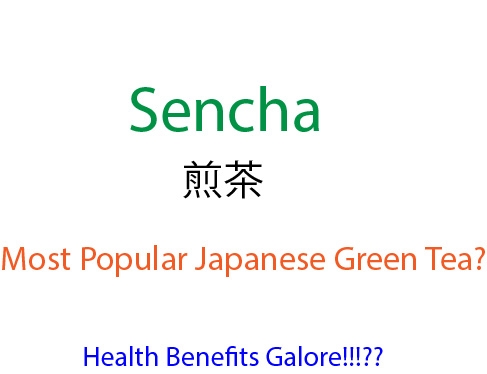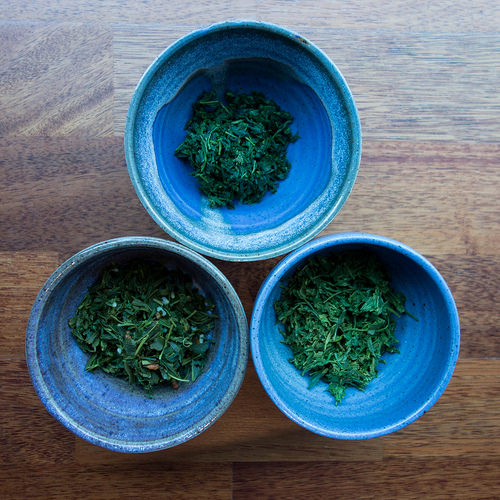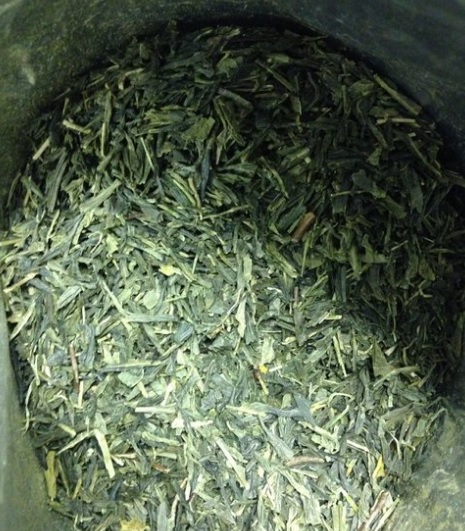Sencha And Its Health Benefits

Opposite to the Japanese Matcha which is a powdered tea, Sencha is a type of Japanese green tea that includes the process of infusion by soaking whole tea leaves in hot water.
Being one of the most expensive and popular tea in Japan representing 80% of the country’s tea production, sencha has several varieties depending on the way it is being cultivated and the time of the year the leaves are harvested.
Highest Quality Variety
Referred to as the jade tea, the gyokuro variety is cultivated in shaded areas away from direct sunlight and is considered the highest quality of sencha tea.

 by Kent Wang- Clockwise from top: gyokuro, Hosen sencha, genmaicha
by Kent Wang- Clockwise from top: gyokuro, Hosen sencha, genmaicha
The harvesting of tea leaves coincides with the onset of seasons. It usually begins in the southern part of Japan moving up north which falls in time with the warmth of the spring season where the first flush of leaves are being harvested making up the shincha variety. This is considered the most delicious tea wherein the leaves contain huge amounts of nutrients as the plants store much of it during the cold winter season. Between summer and autumn, the second flush of leaves occur where you can produce bancha tea which bears a strong organic straw smell.
Why its Popularity?
The popularity has led to the anticipation of Japanese people in the occurrence of favorable weather condition which triggers the flushing of tea leaves. The harvested leaves are initially steamed for 15 minutes to prevent oxidation, then rolled and dried where the end product is a cylindrical shape tea leaves. Before being served, infusion takes place where the leaves are steamed again. Depending on your preference, the steam temperature will determine the flavor of the tea where temperate water produces a mellow taste while steaming hot water makes for an astringent flavor.
Drinking this tea is also known to possess some health benefits. One of the nutrients locked in the leaves are fluoride thereby promoting good oral health. Further, the tea strengthens the enamel of your teeth minimizing the build-up of cavities, plaque and bacterial infection. In short, you will have a fresh breath after drinking a cup of sencha tea.

Health Benefits
As the tea plant stores more nutrients in the winter just before they are harvested, sencha has a very high antioxidant, anti-inflammatory and anti-viral properties which boosts your immune system. The tea has catechins which is more powerful than well known antioxidants such as vitamins C and E.
Reduces Blood Pressure
Drinking sencha reduces your cholesterol level and high blood pressure thereby reducing the risk of heart disease and stroke. Regular drinkers have prevented the onset of diabetes and persons who have this ailment will also consume it to lower their blood sugar levels.
Calming Anxiety
It has also become a part of meditation giving you a good way to handle anxiety while calming and clearing your mind with stress. It will also provide you with a mild stimulant that will trigger sleepiness giving you the luxury of recharging from the hustle and bustle of a daily life.
Ceremonial
Sencha is not just about drinking tea. It can also come with a ceremony in the form of an art called Senchado. The way of preparing and offering to a friend, guest or relative is a sign of pride and respect as the ceremony uses only the highest grade of green tea leaves.





